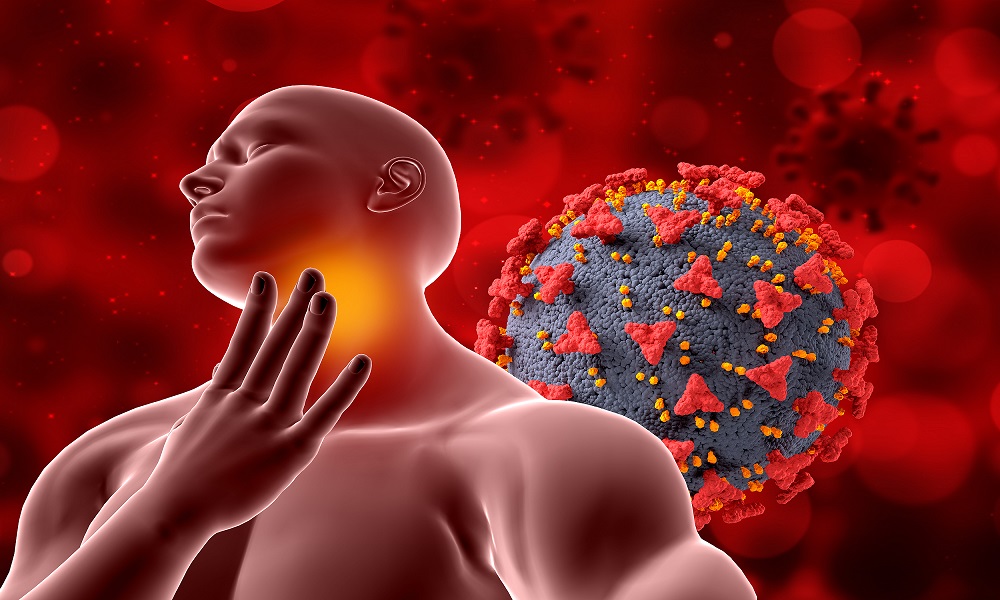Book an appointment with the top Hypopharynx Squamous Cell Carcinoma (HPHSC) specialists in (...).
Best Hypopharynx Squamous Cell Carcinoma (HPHSC)Treatment Options in (...)
In Delhi, several effective treatment options are available for Hypopharynx Squamous Cell Carcinoma (HPHSC), a rare and aggressive malignancy. These treatment options are provided by top-tier healthcare facilities with multidisciplinary teams of specialists who offer personalized care tailored to each patient’s unique needs. Here are some of the best HPHSC treatment options in Delhi, along with brief elaborations:
Surgery
Surgical intervention is often a primary treatment option for HPHSC. It involves the removal of cancerous tissue from the hypopharynx. Depending on the extent and location of the tumor, the surgery may include partial or total laryngectomy, pharyngectomy, or neck dissection.
Radiation Therapy
Radiation therapy uses high-energy X-rays to target and destroy cancer cells. It can be employed as the primary treatment for early-stage HPHSC or in combination with other therapies for advanced cases. Advanced radiation techniques, such as intensity-modulated radiation therapy (IMRT), help minimize damage to healthy tissues.
Chemotherapy
Chemotherapy involves the use of drugs to kill or slow the growth of cancer cells. It is often administered in conjunction with radiation therapy in a treatment approach known as chemoradiation. This combination therapy is particularly effective in advanced HPHSC cases.
Targeted Therapy
Targeted therapy medications are designed to target specific molecules or pathways involved in the growth and spread of cancer cells. These therapies are considered for HPHSC patients whose tumors express certain molecular markers.
Immunotherapy
Immunotherapy enhances the body's immune system to recognize and attack cancer cells. It has shown promise in the treatment of various cancers, and ongoing research is exploring its potential for HPHSC.
Reconstructive Surgery
After the removal of cancerous tissue, reconstructive surgery may be necessary to restore function and appearance. Procedures may include tissue flap surgeries or the use of implants. The choice of reconstructive surgery is based on individual circumstances.
Clinical Trials
Clinical trials offer access to cutting-edge treatments and emerging therapies. Participation in clinical trials can provide HPHSC patients with the opportunity to receive novel treatments that may improve outcomes.
Complementary Therapies
Complementary therapies, such as nutritional support and integrative treatments, may be integrated into the overall treatment plan to enhance patient well-being and minimize side effects.
Supportive Care
Comprehensive care goes beyond medical treatment and includes emotional support, pain management, nutritional guidance, and assistance with managing treatment-related side effects. Supportive care ensures that patients have a holistic approach to their HPHSC journey.
The choice of treatment for HPHSC depends on factors like the stage of cancer, the patient’s overall health, and the location of the tumor. Patients are strongly encouraged to seek timely medical evaluation and consult with a team of specialists to determine the most suitable treatment plan based on their circumstances. Delhi’s world-class medical facilities and experienced healthcare professionals provide a supportive and optimal environment for the diagnosis and treatment of HPHSC.
Art of Healing Cancer in India (AOHC India) - Your Path to Healing
Welcome to the Art of Healing Cancer (AOHC) in India, your trusted resource for comprehensive information on cancer care, with a focus on Hypopharynx Squamous Cell Carcinoma (HPHSC). At AOHC India, we are committed to providing you with accurate and well-researched content that is optimized for search engines and designed to help you understand and navigate the complex world of cancer treatment.
Understanding Hypopharynx Squamous Cell Carcinoma (HPHSC)
Hypopharynx Squamous Cell Carcinoma (HPHSC) is a type of cancer that affects the hypopharynx, a region of the throat that plays a crucial role in the process of swallowing and breathing. It is essential to comprehend the various aspects of HPHSC, including its types, genetic factors, and integrative treatment options, to make informed decisions about your healthcare.
Types of HPHSC
AOHC India provides in-depth information on the various types of Hypopharynx Squamous Cell Carcinoma (HPHSC). These include:
Glottic Cancer
This type of HPHSC originates in the vocal cords of the larynx and can affect speech and breathing.
Supraglottic Cancer
Supraglottic HPHSC develops in the upper part of the larynx and can impact swallowing and vocal function.
Subglottic Cancer
Subglottic HPHSC occurs in the lower part of the larynx and can obstruct the airway.
Integrative Therapies and Intravenous Vitamin C (IVC)
Integrative therapies are a cornerstone of the comprehensive approach to cancer care at AOHC India. These therapies aim to combine the best of conventional treatments with complementary and alternative therapies to enhance treatment outcomes and improve the overall quality of life for cancer patients. Intravenous Vitamin C (IVC) is one such integrative therapy that has gained recognition for its potential in cancer care. Vitamin C, a powerful antioxidant, is administered intravenously at high doses to help combat the adverse effects of cancer and cancer treatment. IVC can boost the immune system, mitigate the side effects of chemotherapy, and potentially inhibit the growth of cancer cells. When used in conjunction with conventional treatments, such as radiation and surgery, IVC complements the overall cancer care strategy. While IVC is not a standalone cure for Hypopharynx Squamous Cell Carcinoma, it is an example of how integrative therapies can be incorporated into a holistic approach to cancer treatment.
Nutraceuticals and Gene Inhibition
Nutraceuticals, a fusion of “nutrition” and “pharmaceuticals,” are bioactive compounds found in food and dietary supplements that have demonstrated potential health benefits. Some nutraceuticals have shown promise in inhibiting the activity of genes associated with cancer, including those linked to Hypopharynx Squamous Cell Carcinoma.
One such nutraceutical is resveratrol, a natural polyphenol found in grapes, red wine, and certain berries. Resveratrol has been studied for its potential to suppress the activity of genes involved in cancer, including TP53. While research in this area is ongoing, the integration of nutraceuticals like resveratrol into your diet may have a positive impact on your overall health and well-being.
At AOHC India, we emphasize the importance of personalized treatment plans that take into consideration the specific genetic factors and nutritional components relevant to your condition. By integrating nutraceuticals into your regimen, we aim to provide you with a comprehensive and well-rounded approach to cancer care.
AOHC India: Your Trusted Resource
At AOHC India, our content is meticulously curated to provide you with accurate, informative, and engaging insights into Hypopharynx Squamous Cell Carcinoma. We prioritize your understanding of the condition, the genes involved, and integrative therapies, ensuring that you are equipped with the knowledge to make informed decisions about your healthcare journey.
Hypopharynx Squamous Cell Carcinoma is a complex condition with various types, each influenced by specific genetic factors. Integrative therapies and nutraceuticals offer promising avenues for treatment. AOHC India is your trusted source for comprehensive information and support in your fight against HPHSC. We are here to help you navigate this challenging journey and empower you with the knowledge you need for optimal care.
For personalized guidance and additional information on Hypopharynx Squamous Cell Carcinoma, please do not hesitate to reach out to us at AOHC India. We are here to support you every step of the way.
Remember, at AOHC India, we are dedicated to your well-being and committed to providing you with the best resources for your healing journey. We are here to help you understand your condition, explore treatment options, and offer support throughout your cancer care experience.
Pathophysiology of HPHSC
Pathophysiology refers to the functional changes that occur within the body because of a disease or condition. In the case of HPHSC, the pathophysiological process is closely related to the development of cancerous cells in the hypopharynx.
Cancer, including HPHSC, often begins with genetic mutations. The exact triggers of these mutations can vary but may include exposure to carcinogens, genetic predisposition, or other factors. These mutations can lead to uncontrolled cell growth and the formation of a tumor within the hypopharynx.
As the tumor grows, it can invade nearby tissues and potentially spread to lymph nodes and distant organs, a process known as metastasis. HPHSC’s pathophysiology involves not only the primary tumor but also the potential for metastatic spread, which significantly impacts the prognosis and treatment approach.
Genetics and HPHSC
Understanding the genetic factors associated with HPHSC is crucial for a more personalized and targeted approach to treatment. Several genes have been identified as being involved in the development and progression of HPHSC. Among these, the following genes stand out:
TP53
The TP53 gene, often referred to as the "guardian of the genome," plays a critical role in preventing the development of cancer. Mutations in TP53 can disrupt its ability to control cell division and suppress the formation of tumors. In HPHSC, TP53 mutations are common and contribute to the cancer's aggressive nature.
EGFR (Epidermal Growth Factor Receptor)
EGFR is a gene that encodes a receptor for a protein called epidermal growth factor. When EGFR is overexpressed or mutated, it can promote the growth and spread of cancer cells. In HPHSC, EGFR alterations are associated with a poorer prognosis.
PTEN (Phosphatase and Tensin Homolog)
PTEN is a tumor suppressor gene that regulates cell growth and division. Mutations in PTEN can lead to the uncontrolled survival and growth of cells, contributing to the development of cancer. PTEN mutations are relevant to HPHSC and may impact its management.
Understanding the genetic profile of an individual’s HPHSC can help healthcare professionals determine the most effective treatment strategies, such as targeted therapies, which address the specific genetic factors contributing to cancer.
Risk Factors for HPHSC
While genetics plays a significant role in the development of HPHSC, several risk factors can increase an individual’s likelihood of developing this cancer. Identifying these risk factors is essential for early detection and prevention. Common risk factors for HPHSC include:
Tobacco, whether smoked or chewed, is a major risk factor for HPHSC. It exposes the throat to harmful carcinogens and is a leading cause of many head and neck cancers, including HPHSC.
Heavy alcohol consumption is another significant risk factor for HPHSC. When combined with tobacco use, the risk is even higher. Alcohol can irritate and damage the lining of the throat, making it more susceptible to cancer development.
Certain strains of HPV, notably HPV-16 and HPV-18, have been linked to the development of HPHSC. HPV-related HPHSC often affects a younger demographic.
Diets lacking in fruits and vegetables, which provide essential nutrients and antioxidants, may increase the risk of HPHSC.
Exposure to asbestos and other industrial carcinogens can elevate the risk of developing HPHSC, especially in certain occupational settings.

It is important to note that the interaction between these risk factors and genetic predisposition can be complex. For instance, individuals with specific genetic mutations may be more susceptible to the harmful effects of tobacco and alcohol, further emphasizing the importance of personalized healthcare.
Reducing the Risk: Evidence-Based Measures
Preventing HPHSC involves adopting evidence-based measures that address the risk factors associated with the condition. Here are some proactive steps that can help reduce the risk of HPHSC:
Smoking Cessation
Quitting smoking is one of the most effective ways to reduce the risk of HPHSC. It is never too late to quit, and the benefits of smoking cessation extend beyond cancer prevention.
Moderate Alcohol Consumption:
If you choose to drink alcohol, do so in moderation. Limiting alcohol intake can significantly reduce the risk of HPHSC.
HPV Vaccination
For individuals in age groups recommended for HPV vaccination, consider getting vaccinated to protect against HPV-related cancers.
Healthy Diet
Maintain a balanced diet rich in fruits and vegetables. These foods provide essential nutrients and antioxidants that support overall health.
Occupational Safety
If you work in an environment with potential carcinogen exposure, follow safety guidelines and use protective measures to reduce risk.
Regular Check-ups
Regular medical check-ups and screenings are essential for early detection and prompt treatment of cancer does develop.
In conclusion, understanding the pathophysiology, genetics, and risk factors associated with Hypopharynx Squamous Cell Carcinoma (HPHSC) is crucial for informed decision-making regarding healthcare and prevention. The complex interplay of genetic factors and environmental influences underscores the need for a personalized approach to cancer management and prevention. By adopting evidence-based measures and promoting awareness, we can work towards reducing the risk of HPHSC and improving overall public health. Always consult with healthcare professionals for guidance on cancer prevention and early detection.
In Our Doctor’s Words
Art of Healing Cancer in Delhi specializes in the treatment of Hypopharynx Squamous Cell Carcinoma (HPHSC). This rare and aggressive malignancy demands immediate medical attention. The institution offers a multidisciplinary approach, integrating surgery, radiation therapy, and chemotherapy to create personalized treatment plans. Cutting-edge technology ensures up-to-date diagnostic and treatment options. Patient-centric care goes beyond medical treatment, offering emotional support for individuals and their families throughout their HPHSC journey. Art of Healing Cancer participates in pioneering research and provides access to clinical trials, offering new hope for better outcomes. The institution’s reputation for excellence and compassionate care, along with Delhi’s medical excellence, make it a top choice for HPHSC treatment. Early intervention and specialized care are pivotal in the battle against HPHSC.

Dr. Mandeep Singh Malhotra
Most experienced and highly Qualified Oncologist
More than 20-year experience
Why Choose Art of Healing Cancer for Hypopharynx Squamous Cell Carcinoma (HPHSC) Treatment in (...)
When facing a complex and rare cancer like Hypopharynx Squamous Cell Carcinoma (HPHSC), the choice of a healthcare provider can be a crucial factor in your journey towards recovery and improved quality of life. Art of Healing Cancer (AOHC) in Delhi is a renowned healthcare institution known for its excellence in the treatment of cancer, and it is particularly well-equipped to provide comprehensive care for individuals dealing with HPHSC.
HPHSC is a rare malignancy that demands specialized knowledge and experience in its diagnosis and treatment. AOHC boasts a team of highly skilled oncologists and specialists who are well-versed in the intricacies of HPHSC. Our experts understand the unique challenges this cancer presents and are dedicated to delivering the most advanced and personalized care.
HPHSC often requires a multi-faceted approach to treatment, including surgery, radiation therapy, chemotherapy, and potentially emerging therapies. AOHC employs a multidisciplinary approach to ensure that patients receive a comprehensive and well-coordinated treatment plan. Our team of specialists collaborates to develop personalized strategies that address the specific needs of each patient, taking into consideration the stage of the cancer and individual health factors.
The effective treatment of HPHSC often relies on the use of advanced medical technologies. AOHC is equipped with state-of-the-art facilities and cutting-edge technology that allows us to provide the most up-to-date diagnostic and treatment options for HPHSC. Our commitment to staying at the forefront of medical advancements ensures that patients receive the best care possible.
At AOHC, we prioritize the well-being of our patients throughout their journey. We understand that an HPHSC diagnosis can be emotionally and physically challenging. Our approach extends beyond medical treatment to encompass emotional support and resources that help patients, and their families navigate the challenges that may arise. Our patient-centric care philosophy ensures that you are not alone in your battle against HPHSC.
HPHSC is a condition that benefits from ongoing research and the development of emerging therapies. AOHC is actively involved in cancer research and has access to the latest clinical trials and innovative treatments. By choosing AOHC, patients with HPHSC may have the opportunity to participate in groundbreaking research and access cutting-edge therapies that offer new hope for better outcomes.
AOHC has established a reputation as a trusted name in cancer care, not only in Delhi but also on a national and international scale. We have a history of successfully treating complex and rare cancers, including HPHSC. Our commitment to excellence, compassionate care, and the continuous pursuit of advancements in cancer treatment make AOHC a top choice for individuals seeking HPHSC treatment.
Delhi, the capital city of India, is renowned for its world-class medical facilities and experienced healthcare professionals. By choosing AOHC in Delhi for HPHSC treatment, patients have access to a network of top-tier healthcare providers and comprehensive support services that are essential in the journey to recovery.

In your battle against HPHSC, choosing the right healthcare provider can make all the difference. Art of Healing Cancer in Delhi stands as a beacon of hope and excellence in the fight against this rare and challenging malignancy. With specialized expertise, a multidisciplinary approach, cutting-edge technology, patient-centric care, involvement in pioneering research, and a trusted name in cancer care, AOHC is well-equipped to provide you with the comprehensive treatment and support you need on your journey towards recovery and improved quality of life.
Frequently Asked Questions
HPHSC is typically diagnosed through a combination of procedures. A biopsy is the primary diagnostic tool, where a small tissue sample is taken from the hypopharynx and examined under a microscope to confirm the presence of squamous cell carcinoma. Imagine tests such as CT scans and MRIs are often conducted to assess the extent of the cancer’s spread. Additionally, genetic studies may be employed to gain insights into the specific characteristics of HPHSC, helping guide treatment decisions.
HPHSC staging is crucial for determining the severity of the disease and guiding treatment decisions. Staging is based on factors like the tumour’s size, involvement of nearby lymph nodes, and the presence of metastasis in distant parts of the body. The stage of HPHSC informs both the choice of treatment options and the prognosis for the patient.
Yes, reconstructive surgery can be an option for patients who have undergone treatment for HPHSC. The specific procedures may involve tissue flap surgeries or the use of implants, depending on individual circumstances, including the extent of tissue removal during treatment. Patients should discuss their reconstructive options with their healthcare providers to determine the best approach for their unique case.
Reducing the risk of HPHSC recurrence involves various strategies, such as adopting a healthy lifestyle, managing stress, adhering to prescribed medications, attending regular follow-up appointments, and following the recommended treatment plan diligently. Some medical facilities, like Art of Healing Cancer, incorporate complementary therapies and nutraceuticals to enhance treatment outcomes and minimize the risk of HPHSC recurrence.
HPHSC patients and their families have access to a range of support services. These may include counselling to address the emotional and psychological aspects of the disease, participation in support groups for shared experiences and mutual support, and survivorship programs designed to help patients navigate life after cancer treatment. Comprehensive care, including holistic support, is offered at Art of Healing Cancer to enhance the overall well-being of HPHSC patients throughout their journey.
Our comprehensive approach encompasses conventional therapies, integrative treatments, genetic insights, and nutraceuticals, all geared towards optimizing outcomes and improving the lives of HPHSC patients. Your health and well-being are our top priorities, and we are here to support you throughout your HPHSC journey.
